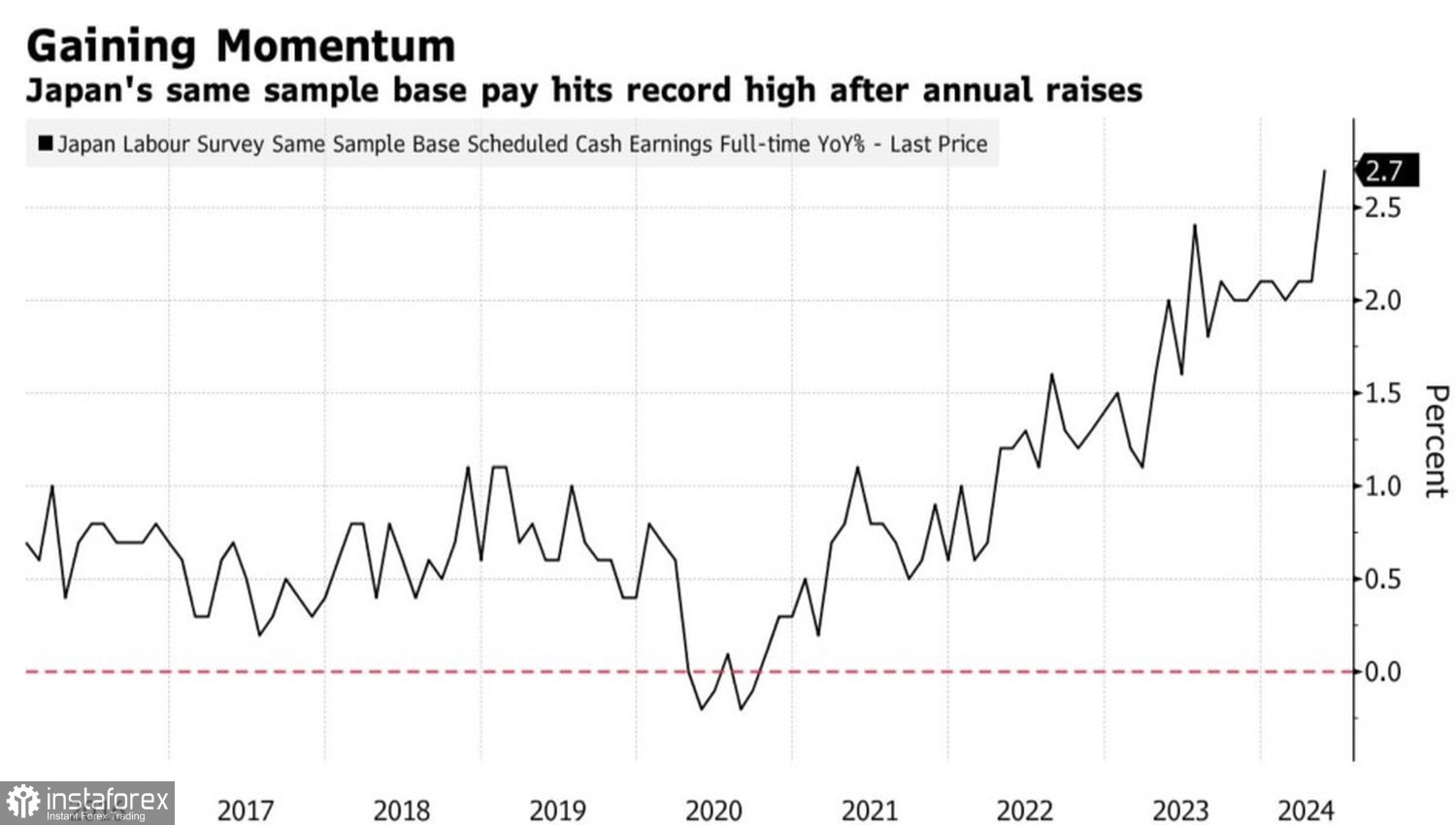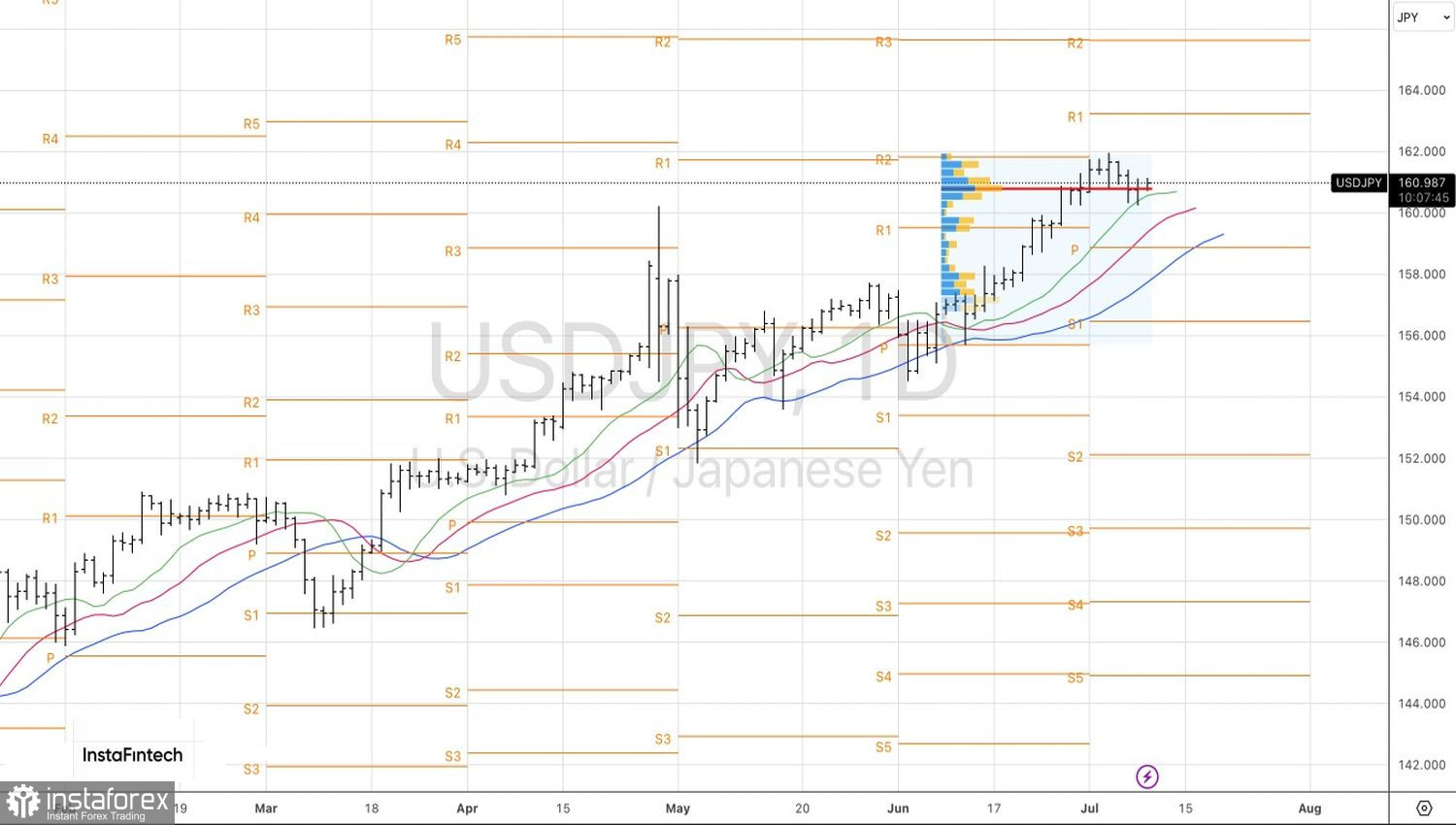The Bank of Japan may raise interest rates twice by the end of March 2025 to reach 0.5%, but this will not help the yen, according to Mizuho Financial Group. I beg to differ. Breaking the upward trend of USD/JPY requires efforts from both sides. A mere tightening of monetary policy by the BOJ will not suffice, as shown by the events of the first half of this year. However, by the end of the first quarter, the federal funds rate may be 75-100 basis points lower than it is now, which will determine the fate of both the US dollar and the yen.
Attempts by the Japanese government and the BOJ to stop speculators with verbal and currency interventions resemble a fight against windmills. More than $60 billion went down the drain, and USD/JPY hit four record highs in June alone, reaching levels not seen in 38 years. The BOJ had a good opportunity to intervene during the release of US employment data for June, which weakened the dollar, but it did not take action. Now it has to wait for Federal Reserve Chief Jerome Powell's speech before Congress or the US inflation data. However, BOJ Governor Kazuo Ueda and his colleagues might have another plan.
Japanese workers' base pay increased 2.5%, the fastest growth since 1993, which gives the BOJ an opportunity to raise the overnight rate by the end of July. A more stable measure for full-time workers rose by a record 2.7%. This is more informative as it does not include bonuses and overtime pay. Such wage dynamics were expected after the unions' agreement with employers to raise wages by 5.1% in 2024, the largest increase since 1991.
Dynamics of average wages in Japan

It is quite possible that the BOJ has decided to surprise speculators with a double blow: along with raising the overnight rate, it may scale back its asset purchases and quantitative easing. The central bank has sent a survey to the country's financial institutions, asking how they would like to see the adjustments. Responses varied from zero, 2-3 trillion yen to 3-4 trillion yen. Currently, the figure stands at 6 trillion yen, and a significant cut is necessary to shake the markets.

Rumors of the BOJ's double blow are likely to start slowing down the USD/JPY bulls in 7-10 days, but they may start to retreat as Powell's dovish rhetoric before Congress or after further slowing of consumer prices in the US becomes known. However, if the Fed chairman fails to deliver a dovish-enough stance despite progress in disinflation, the US dollar will regain investor favor.
Technically, on the daily chart of USD/JPY, the formation of a doji bar near the fair value and the rise in quotes above its peak provide a basis for buying the pair if it consolidates above the 161.2 mark. Conversely, a signal to sell would be if the US dollar falls to the levels of 160.75 and 160.25.





















